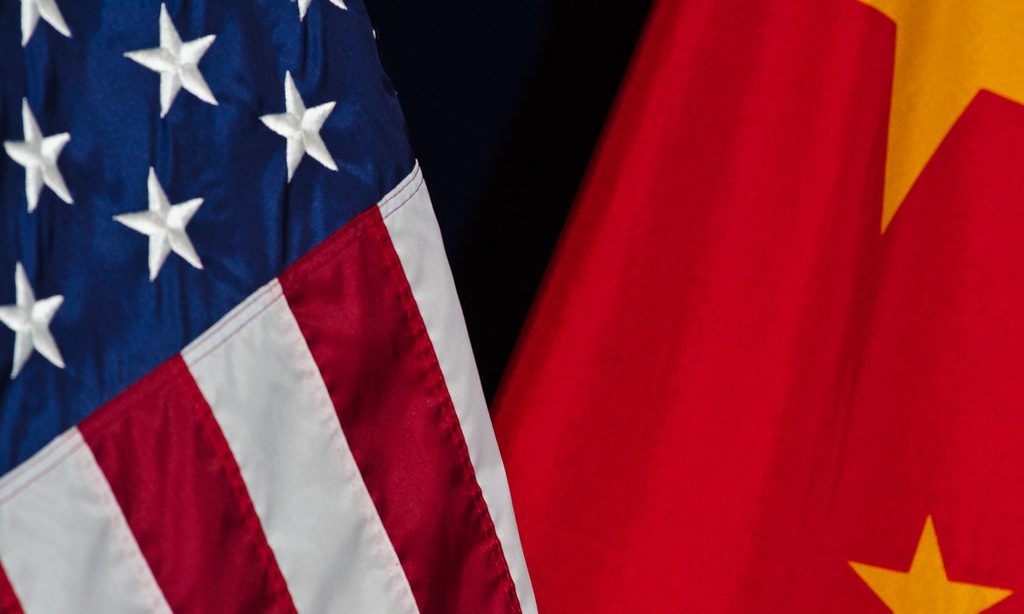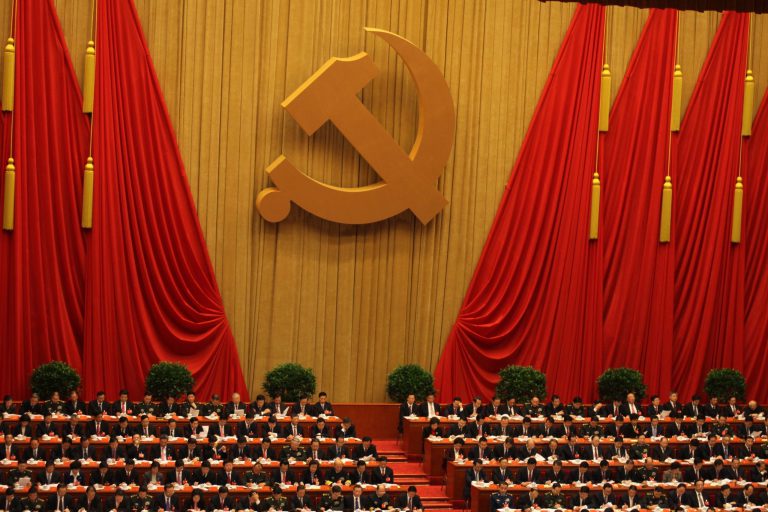Oxford-style Debate: Will Europe Choose the U.S. Over China?

Motion: “Europe will choose the US over China.“
FOR the Motion:

IVANA KARÁSKOVÁ
CHOICE Founder & Leader, AMO
AGAINST the Motion:

ALICJA BACHULSKA
Analyst, Asia Research Centre
Let me start by asserting that for Europe the choice between the US and China is actually no choice at all.
Frankly, China has not offered Europe anything that could prompt it to even begin considering the option of strategic realignment. To be sure, the People’s Republic of China had some chances, at several levels:
Beijing could have offered Europe fair and open access to the Chinese market.
Beijing could have continued on the path of gradual socialization into the international order. Beijing could have benefited from having no direct strategic or security clash with Europe.
Europe was ready to offer China its expertise, cooperation and partnership. But Beijing largely mishandled the relationship and effectively pushed Europe away. It refused to open up its economy while benefiting from access to the EU single market. Specifically, it alienated the European business activity in China by introducing the social credit system for companies, forcing them to establish party cells within their Chinese branches, not protecting intellectual property rights, and copycatting European products, provoking consumers boycotts and subsidizing Chinese ‘national champions’ that compete with European businesses.
Since the ascent of Xi Jinping, China’s domestic and international liberalization processes have stalled and, in many cases, overturned. The idea of normative convergence gave way to normative competition. China is increasingly viewed as a challenger to established international norms, from aggressive territorial claims in the South China Sea, through dubious international loan standards, to technological security threats in Huawei, to exporting pollution along the Belt and Road. Moreover, China has escalated threats toward EU member states and their representatives. Not least, China attempts to manipulate media narratives in Europe, conducts hybrid influence operations, tries to push its way into the academic discourse at European universities and attempts to steal European know-how via economic espionage.
Due to all of this and more, China has been steadily losing its allies inside Europe. Businesses that wanted to make money off the Chinese market are fed up with rising restrictions and an uneven playing field. Proponents of multilateralism, disillusioned with the ways how democracies work in the West, find it evermore difficult to advocate closer ties with an actor which builds concentration camps for ethnic minorities and has covered up an outbreak of another epidemic.
While the US can be sometimes deeply annoying (especially in the context of the Trump presidency), it remains an essential ally to Europe due to a clear convergence of interests.
For Europe, there is really only one choice – to choose the United States.
The internal logic of this statement is inherently misleading. It suggests that a clear-cut choice is necessary for the EU to maintain its global position, competitiveness and international appeal.
Moreover, it is clearly based on a worldview that does not take into account the agency and subjectivity of smaller states: it portrays the future of international cooperation as an outcome of a battle between the two and only superpowers, which creates a dichotomous view where no other actors are allowed to influence the global balance of power. It frames the EU as a passive actor, whose political will and ambitions are reduced to making a seemingly simple choice between two partners with contradictory global interests.
At the same time, it has to be stressed that while I do agree that Xi Jinping’s China does pose a serious threat to the rules-based international order, I do not agree that the EU must pick sides between the PRC and the US. The US is not a unitary actor in a sense that its current foreign policy does not represent the multitude of domestic voices on both China and other international issues. While bipartisan consensus on China does seem to exist in the US, the views on how to counter this new challenge are diverse. We believe that the EU must create its own policy and global agenda, which in the end might have a lot in common with the US one, especially when it comes to shared concerns related to China’s increasingly aggressive international behavior, trade policies and human rights violations.
This debate should not be about “picking sides”, but about designing and implementing specific policy tools aimed at securing the shared European market and its overall competitiveness. The same goes for European security, both conventional and in terms of emerging hybrid threats. Maintaining the US security umbrella is important for many EU players, most certainly for those in Central and Eastern Europe. Striving for strategic autonomy does not mean rejecting the US-led security system. However, given the unpredictability of the current US administration, the EU should firstly and most importantly focus on its own biggest strengths to counter its weaknesses – not by picking sides, but by tackling head-on the most pressing issues that endanger its global position.
Indeed, many of these problems stem from China’s behavior. This way, the EU’s room for maneuver while cooperating with the US on China-related issues is indeed large. Yet, this type of cooperation should be carried forward using the language and methods in line with the EU’s core values and interests.
Maintaining the ability to independently set priorities while not subsuming to others, no matter whether it’s China or the US, should remain one of the EU’s priorities. In the end, “picking sides” might lead us to a self-fulfilling prophecy of an inevitable clash between the two superpowers. This scenario is certainly something the EU wants to avoid.
Opening statements above have been adapted from the debate below. The full debate between the opposing parties is available on the Asia Society Website and on their YouTube Channel.
Written by
Alicja Bachulska
a_bachulskaDr. Alicja Bachulska is a Research Fellow at CHOICE and Policy Fellow at the European Council on Foreign Relations where she focuses on Chinese foreign policy and China-EU relations.
Plamen Tonchev
TonchevPlamenPlamen Tonchev is Head of Asia Unit at the Athens-based Institute of International Economic Relations and European China Policy Fellow at MERICS, Berlin.
Ivana Karásková
ivana_karaskovaIvana Karásková, Ph.D., is a Founder and Lead of CHOICE & China Projects Lead at the Association for International Affairs (AMO) in Prague, Czech Republic. She is a an ex-Fulbright scholar at Columbia University, NYC, a member of Hybrid CoE in Helsinki and European China Policy Fellow at MERICS in Berlin. She advised the Vice-President of the European Commission, Věra Jourová, on Defense of Democracy Package.
Andrew Small
ajwsmallAndrew Small is a Senior Transatlantic Fellow with the Asia program at the German Marshall Fund of the United States and a non-resident Senior Policy Fellow at the European Council on Foreign Relations.


